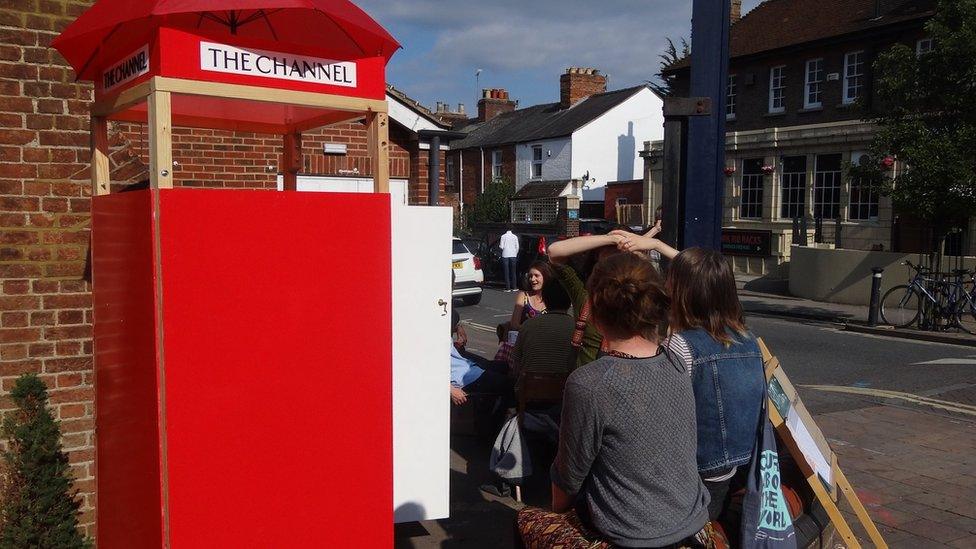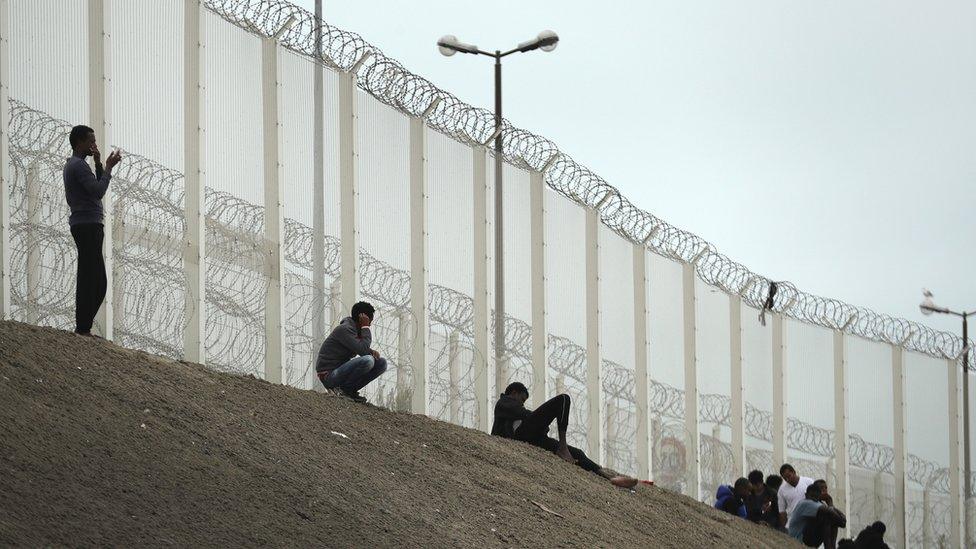'Jungle' booths connect Calais migrant camp to Oxford
- Published

People in Oxford have queued for a chance to leave messages for refugees
Recording booths have been set up in Oxford and the "Jungle" migrant camp in Calais to enable people to swap voice messages.
Messages are relayed between the booth outside East Oxford Community Centre and the 9,000-strong camp, with some translated from Arabic and Farsi.
The idea came from Oxford Brookes University student Isobel Tarr, who called it a way of showing solidarity and support.
Asylum Welcome welcomed the initiative.
Director Kate Smart said: "I can't think of a more powerful way for Oxford people to connect with refugees at our borders."
Ms Tarr said: "For people at the camp I hope it can show that people in the UK support them and welcome them, and are capable of listening to them, in a situation where they don't generally feel heard.
"For people in the UK, some have commented that it has helped them to think about what it means to find solidarity with others... having connected with an individual person rather than a mass of people."
'Make a connection'
The camp has become the focal point of France's migrant crisis. It consists of people mainly from the Middle East, Afghanistan and Africa, many of whom want to claim asylum in Britain.
The messages contain messages of hope, struggle and gratitude
The Home Office is planning to begin construction of a UK-funded wall to step up security.
Oxford linguist Fuchsia Hart, who has been working at the camp, said people were often unsure what to say at first, but later felt "empowered" because they had been heard.
"It's important that people send messages back from the UK to show that they hear their struggle, and try to make a connection with the people as individuals," she said.
A hand-held recording device is set up at each site. Messages are checked and emailed to France, and vice versa, though organisers are looking to set up an app for future projects.
More than 100 people have either recorded or listened to the messages so far. The project runs from 10:00 to 15:00, weather depending, until Saturday.
- Published7 September 2016
